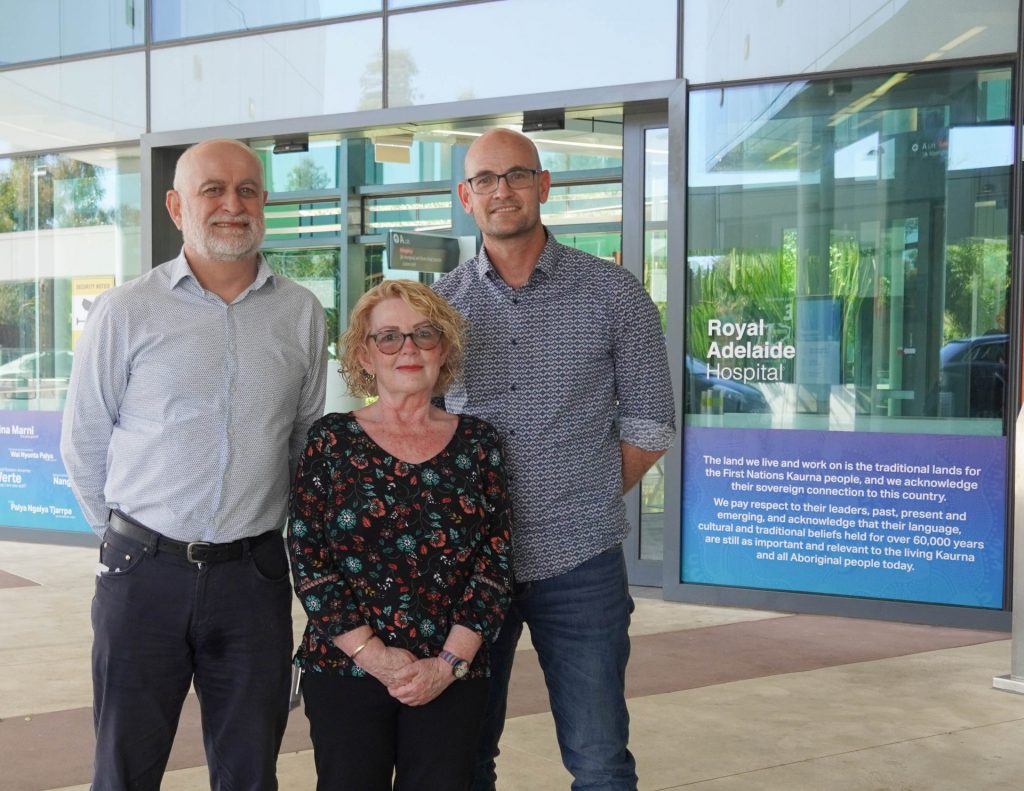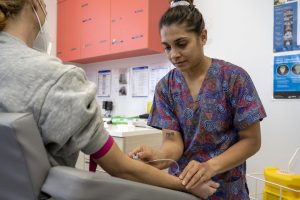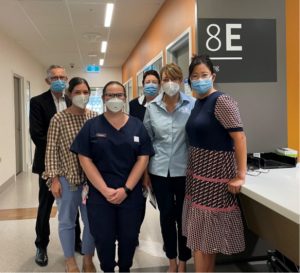A new finger prick testing method is allowing nurses to identify positive cases of Hepatitis C (HEP-C) at the Adelaide Remand Centre in 60 minutes, rather than three weeks.
Give Hep C the Finger is a collaborative project between Viral Hepatitis Nurses from CALHN, SA Health Communicable Diseases Control Branch, and Serco, coordinated by Hepatitis SA.
Faster testing, sooner treatment
HEP-C is a blood borne virus that can cause significant health-related morbidity and mortality. It is transmitted by blood-to-blood contact, most commonly by sharing needles used for intravenous drug use.
While HEP-C affects around 1 per cent of Australians, it has an estimated prevalence of 20 per cent among the Australian prison population.
Standard testing involves an initial screening blood test, which is then confirmed by a second blood test. The combined timeframe is typically around three weeks to identify a positive case of HEP-C.
People in custody at the Adelaide Remand Centre are frequently there for only a short duration, therefore delayed test results can be the difference between receiving timely treatment or not.
“With the old method, often people would be tested, and by the time the results came through, they had already left, and there was no model of follow-up available,” said Anton Colman, Nurse Consultant at the Royal Adelaide Hospital (RAH).
This simple finger prick testing now occurs weekly at the Adelaide Remand Centre and provides test results within 60 minutes, due to the GeneXpert technology.
Faster testing allows treatment to commence sooner, reducing the risk of developing chronic liver conditions and other complications that require hospital treatment.
“HEP-C is a chronic disease that now has very good medications available to treat it. So we can actually cure HEP-C, which is something you can’t normally do with other chronic health conditions,” said Mr Colman.
Rapid testing and treatment of people during the brief remand period has knock-benefits to the wider population.
“If we have more people treated, we will reach the World Health Organisation goal of eradicating Hep C in Australia by 2030.” said Mr Colman.
Pictured: Anton Colman, Nurse Consultant at the RAH, Amanda Chambers (centre) and Jeff Stewart (right,) Nurse Consultants at TQEH. Not pictured is Lisa Carter, Hepatitis SA, who is coordinating the program.



